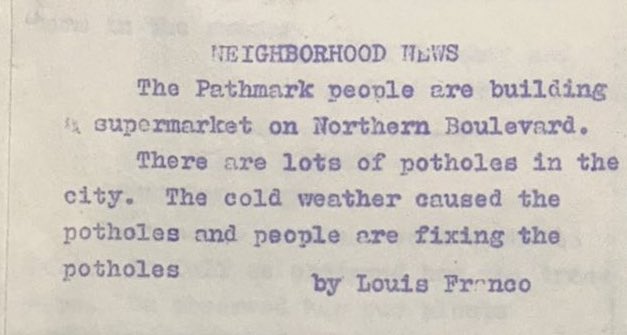I believe that Randomness is the Great Creator, which means that, to me, the universe is a random, unknowable thing that will offer us infinite variety. We can know our intentions, our goals, our wishes and pattern match the randomness against what we need. Some call this manifesting, but I think of it more like exposure and noticing.
It’s a way of taking advantage of the Baader–Meinhof phenomenon.
[which] is a cognitive bias in which, after noticing something for the first time, there is a tendency to notice it more often, leading someone to believe that it has an increased frequency of occurrence.
You don’t need to make opportunities happen more often if you can learn to notice them. So, tune this bias to things you want to notice. If you tell others your intentions they will be tuned on your behalf and think of you.
When I do this, I also enlist “AI” agents.
In 2005, I decided to look for a new job. I was in a non-profit, writing software for the organization itself. I had already realized that the better tech jobs were in product companies where the work I do drives revenue, so I set out to look for one.
I found sites that pulled jobs from many sources, but critically, could take a search term and use it to email me job openings on a regular basis. I set up a dozen search terms based on my personal job statement. I got weekly emails, each with a few jobs to check. It took a year, but eventually, I found Atalasoft, which was perfect for me.
This way of searching had the two elements I mentioned
- I had a specific intention
- I expressed it to an agent that would do its best to notice opportunities for me
I had always thought that finding my next job was blind luck, but I don’t think it was. I think I went through these motions less consciously.
I left Atalasoft in 2013 to do consulting. In mid-2014, I had decided that my next career move had to have some sort of optionality associated with it (little cost, but unlimited upside), so probably a startup. But I was deep in a project and not looking at all.
It was a confluence of several events in a short time that led me to apply to FogCreek and ultimately get a job at Trello. I was not looking for a job, but I was advising my client on remote tech recruiting/working, so I happened to be doing a lot of research on existing companies and saw the FogCreek ad on StackOverflow.
In this case, the StackOverflow job recommender “AI” made this happen. My activity and searches were training it to send me opportunities like this. I keep calling these agents “AI”s, but they were really just glorified SQL statements. Still, even that can be effective if you have enough data.
StackOverflow would have a deep understanding of my skills and my job history (I filled out their Developer Story and connected it to LinkedIn). Even though I had set my status to “not interested in opportunities”, I was doing a lot of job searches, many of them from my client’s office in NYC and some from my home in Massachusetts.
Similarly, FogCreek could train the AI to target developers like me. I had a high reputation on the site in tags that they might be interested in. I was senior and interested in remote work, but had lots of ties to NYC (and spent a lot of time there).
So, I had an intention, and I did express it to an agent, even if I wasn’t fully aware of this until years later.


